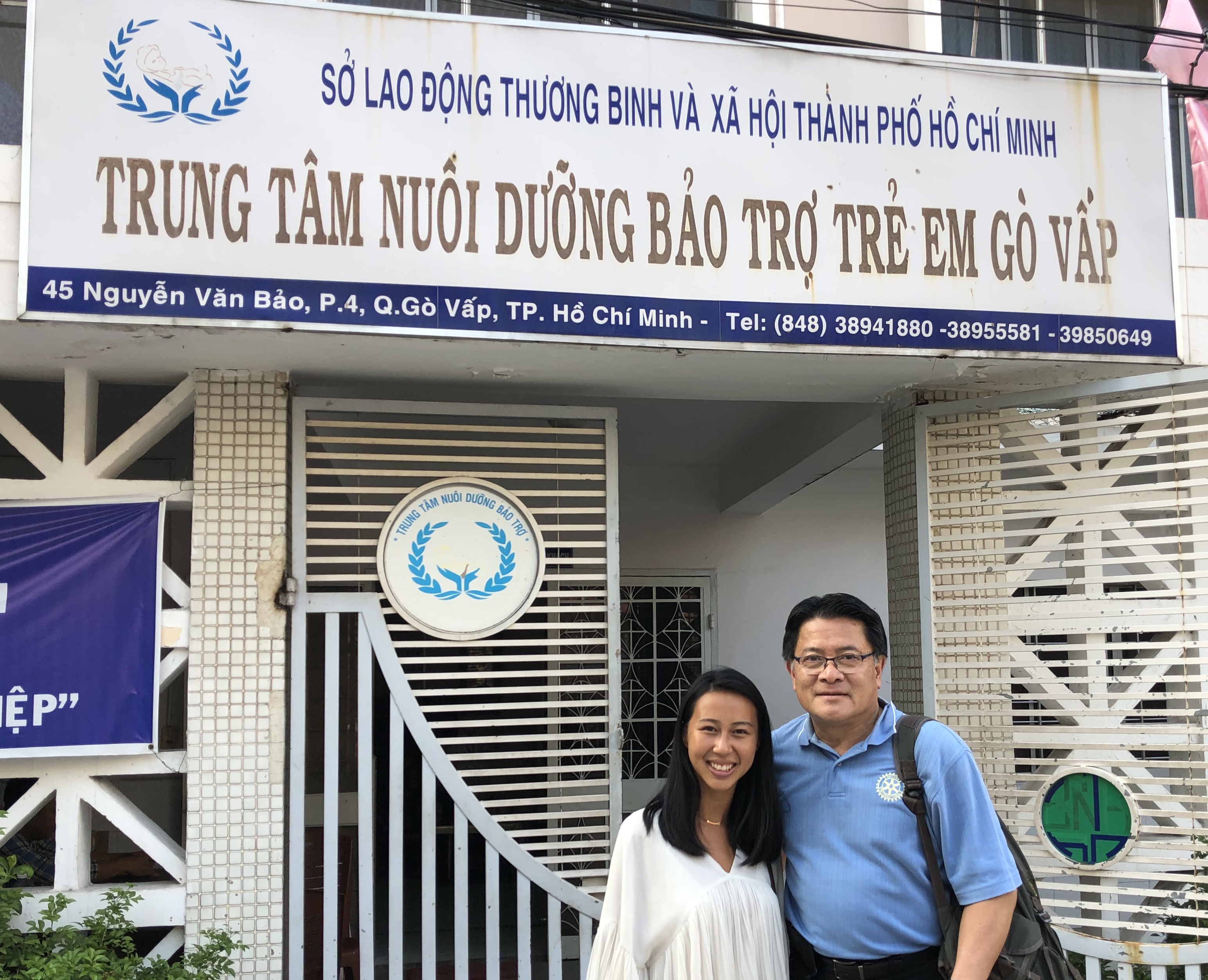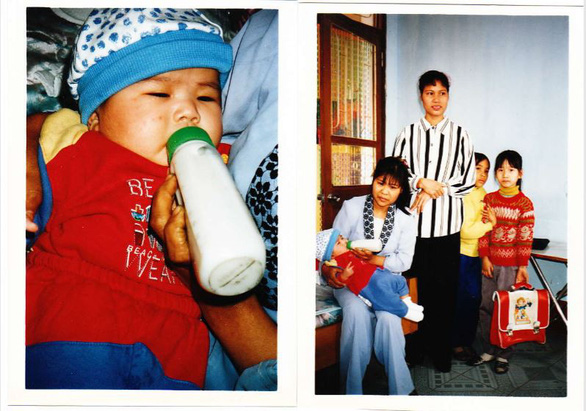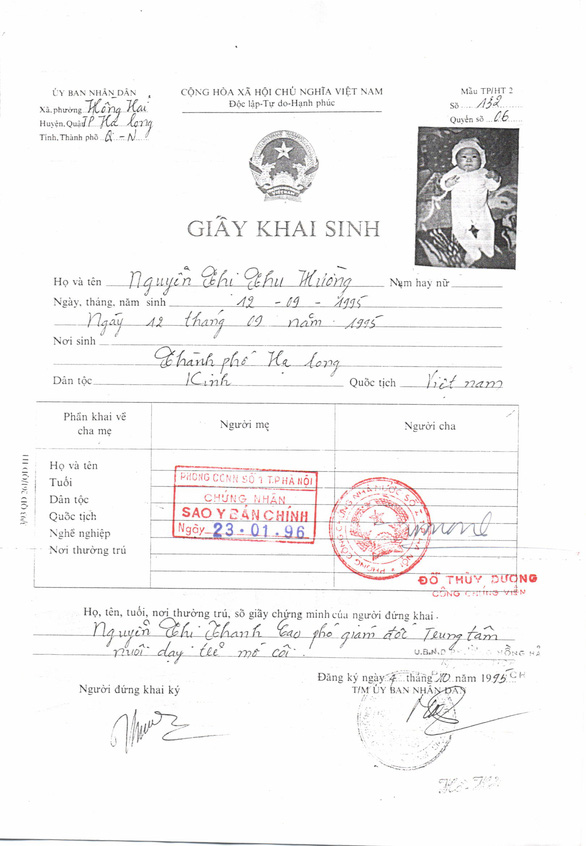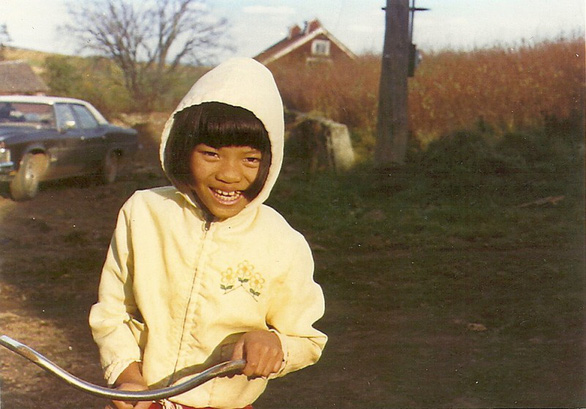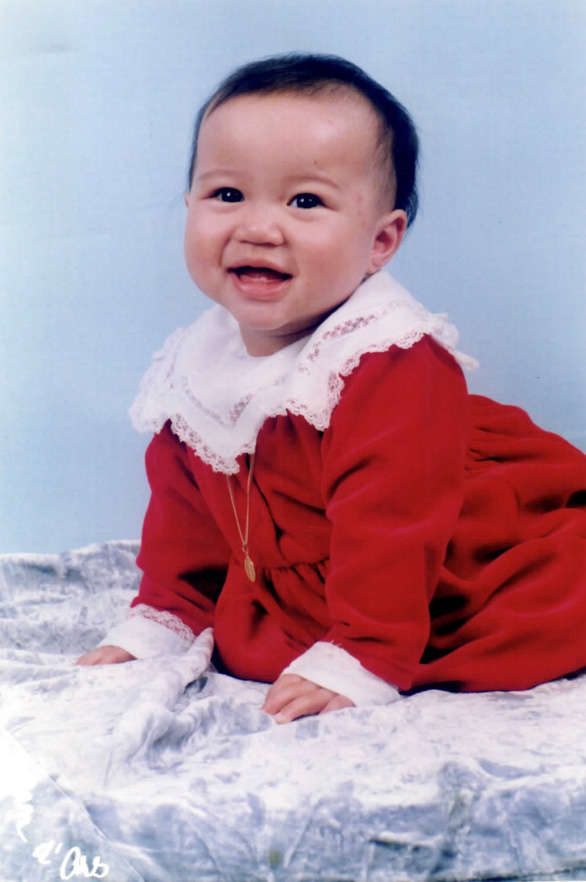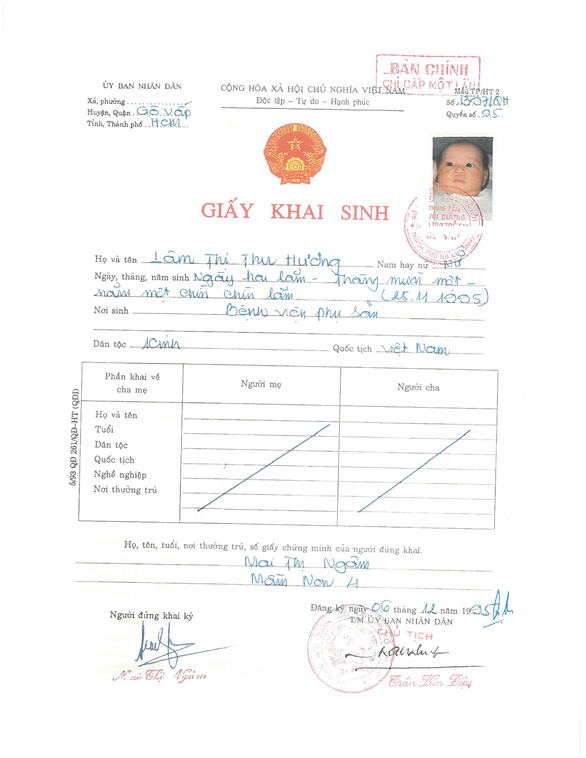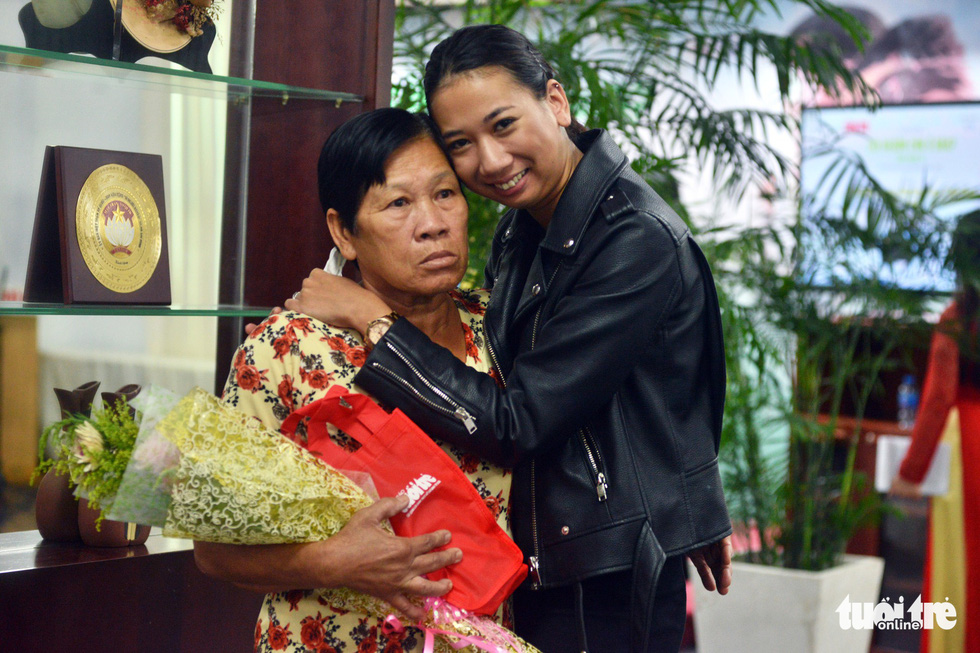More than 20 years since she was found abandoned on a street in northern Vietnam, a Vietnamese woman is still looking for help to find her biological parents.
“Who am I? Why am I adopted? Who are my biological parents?” These are questions Nguyen Thi Thu Huong, an adoptee in Belgium, has been asking herself over the last two decades.
She has recently sent these questions, plus her story, in a letter to 'Helping Vietnamese Adoptees Trace Their Roots,' a program jointly run by Tuoi Tre (Youth) newspaper and Kids Without Borders to help Vietnamese who are adoptees in countries around the world find their biological parents.
‘I want to know what has happened’
Nguyen Thi Thu Huong knew about her life through a record issued in 1995 by the administration of Hong Hai Ward in Ha Long, a coastal city of the northern Vietnamese province of Quang Ninh.
It is a written record by local authorities of when, where and how Huong was found 24 years ago.
“Around 7:30 pm on September 15, 1995, Tran Thi Thu was on the way home from Hong Gai Ward when she heard a baby crying from a basket put near the railway,” the paper reads.
“When she came close, Thu saw a little, skin and bones girl left inside the basket.”
|
|
| Nguyen Thi Thu Huong is seen in pictures taken when she was little. Photo: Supplied |
According to the same record, Thu sent the child to a local children’s shelter where she was later named Tran Thi Thu Huong.
Huong was then adopted and moved to Belgium with her new parents.
In December 2018, Huong, now a Belgian national, returned to the shelter where she was taken care of when she was little in Quang Ninh, to trace her root and met Thu - the woman who found her on the street.
However, things became vague as the woman said she did not remember finding Huong.
Even worse, people living in the neighborhood where Huong was purportedly abandoned also said the story of a baby left in a basket in the area back in 1995 just sounded unfamiliar to them.
Other stories came up during broken conversations between Huong and them due to the language barrier, but none of them matched the only version of events Huong had regarding her younger life.
Failing in her first attempt to trace her root was not enough to make Huong give up on her wish.
Huong said she would study Vietnamese to prepare for the long but meaningful journey ahead.
“I know it could be a complicated story, but I still have hope and want to know what has happened,” Huong shared with 'Helping Vietnamese Adoptees Trace Their Roots.'
“Adoption goes along with love and beautiful opportunities, but it is also associated with a lot of fear, loss and sadness,” she said.
“Not everyone understands that.”
|
|
| Nguyen Thi Thu Huong's birth certificate. Photo: Supplied |
‘I want to reconnect with my past’
Meanwhile, through some papers that she is even not sure are hers, Pham Thi Anh Tuyet from Canada knows she was born on December 7, 1969 in Dong Thanh Commune, Can Giuoc District in the southern Vietnamese province of Long An.
Tuyet also knows the name of her biological mother - Pham Thi Duyen.
Tuyet contracted polio at a very young age. She had been sent to an orphanage in Saigon due to her disability before she was adopted at the age of six.
|
|
| Pham Thi Anh Tuyet is seen in a picture taken when she was young. Photo: Supplied |
Tuyet said she planned to apply for a Vietnamese passport but failed during the process of verifying information related to the place she used to stay in Vietnam.
Growing up in the love of her adoptive parents, Tuyet has always tried to explain to herself the reason why she was sent to the orphanage.
Tuyet said polio paralyzed both of her legs and her left arm, which may have affected her parents’ ability to take care of her. “And so I was put into an orphanage,” she added.
The woman, who has overcome her disability, is now a legal assistant at a law firm and an active athlete who has competed in wheelchair track-and-field and swimming events.
“Still, I want to reconnect with my past,” Tuyet shared.
Tuyet traveled to Vietnam in 2010, 2015, 2016 and 2017, making all efforts to know whether her birth mother is still alive.
“I started to do DNA tests in 2012 but no close relatives have shown up on my tests,” Tuyet shared the reason why she has reached out to 'Helping Vietnamese Adoptees Trace Their Roots.'
Similarly, a French woman whose Vietnamese name is Lam Thi Thu Huong had tried to find a course in Vietnam to study, so that she could have some time for the search to find the missing piece in her life puzzle here.
When she did not make it to Vietnam, Huong signed up for another course in neighboring Cambodia so she could easily travel to Vietnam for the above reason.
Through some papers at the orphanage where she stayed when she was young, Huong knew she was born on November 25, 1995 and was declared as an “abandoned baby."
|
|
| Lam Thi Thu Huong is seen in a picture taken when she was little. Photo: Supplied |
Her mother, Lam Thi Thu, gave birth to her at Tu Du Hospital in Ho Chi Minh City when she was 27.
During her search, Huong learned that her mother once came to a venue in Ho Chi Minh City’s District 3 to look for information about her.
That has motivated her to keep on the faith.
|
|
| Lam Thi Thu Huong's birth certificate. Photo: Supplied |
‘Keep hope’
The journey to find biological parents is always full of challenges as many adoptees have very little information about themselves.
On that long journey to trace their roots, many Vietnamese adoptees have received big support from Michael Son Pham, founder of the U.S.-based Kids Without Borders.
“Never give up hope” is what Son, who has devoted a lot of effort to helping Vietnamese adoptees from around the world, has always told people coming to him for help.
“I hope to have the ability to help all people who have contacted me and asked for help,” Son told Tuoi Tre News.
“So far, I have received requests from people in many places around the world, and every story deeply touches my heart,” he added.
According to him, there are cases where they had to do DNA tests for several times but no matching outcomes appeared.
But Son would always tell the adoptees to keep hope, “because this is a very long journey,” he said.
“Hope” was also what Amandine Durand, a Vietnamese adopted by a French couple 24 years ago, told adoptees like her.
Last year, she had the opportunity to reconnect with her biological family in southern Vietnam after having her story published in Tuoi Tre for the program 'Helping Vietnamese Adoptees Trace Their Roots.'
|
|
| French-Vietnamese adoptee Amandine Durand (R) embraces her biological mother Do Thi Chiem at an event in Ho Chi Minh City on November 5, 2018. Photo: Tuoi Tre |
Within hours of its publication, the story had spread throughout the country and Tuoi Tre became inundated with phone calls from people claiming to know Amandine’s birth mother, Do Thi Chiem, a resident in Ngai Giao Town, Chau Duc District, located in the coastal province of Ba Ria-Vung Tau.
In November last year, Durand was moved to tears as she embraced her birth mother and sister at an event held by 'Helping Vietnamese Adoptees Trace Their Roots' - the first time they met after DNA results confirmed their blood ties.
Like us on Facebook or follow us on Twitter to get the latest news about Vietnam!



